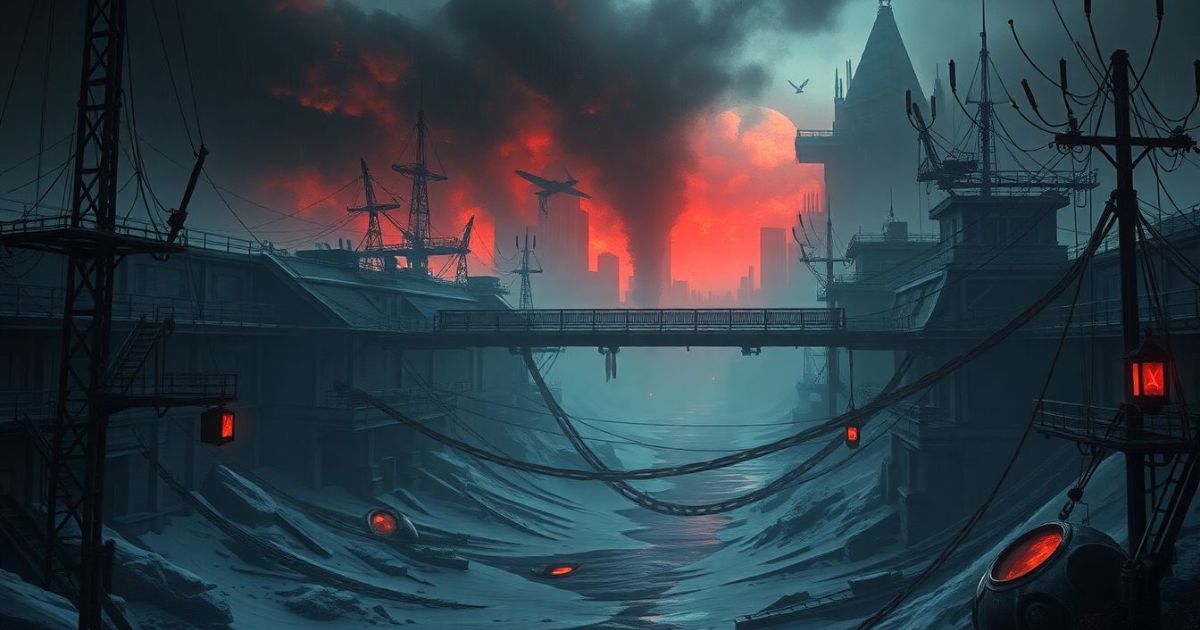Dystopian dreams transport us to dark, unsettling landscapes where societal collapse, oppressive regimes, and environmental decay reign. These dreams often mirror our deepest anxieties about the future, reflecting concerns over political instability, rapid technological change, and ecological crises.

In essence, dystopian dreams serve as a nocturnal canvas for our fears and hopes regarding the world’s direction, urging us to confront and process our inner turmoil.
Key Takeaways
- Reflecting Modern Anxieties: Dystopian dreams are symbolic representations of our collective fears about a crumbling society and an uncertain future.
- Emotional Intensity: Research suggests that roughly 15–20% of dreamers report experiencing dystopian themes, marked by feelings of despair and urgency.
- Therapeutic Value: Understanding these dreams can help address unresolved fears and foster personal growth by transforming anxiety into proactive change.
- Cultural Mirror: These dreams not only reveal individual stress but also echo global issues such as environmental degradation and social injustice. Source
The World of Dystopian Dreams
Dystopian dreams are more than just nightmares—they are a reflection of our waking lives. As our society becomes increasingly complex and, at times, overwhelming, our subconscious often reimagines these stresses in the form of dystopian imagery.
You might find yourself navigating a desolate cityscape, struggling against a tyrannical force, or witnessing the collapse of a familiar world. These scenarios are not mere fantasies; they are the mind’s way of processing contemporary challenges.
For many, these dreams serve as a stark reminder of the fragile nature of civilization. The recurring motifs of decay, confinement, and chaos may point to underlying concerns about global issues, such as climate change, political unrest, and the isolating effects of technology.
Interpreting the Symbols of Dystopia
The symbols that populate dystopian dreams are rich with meaning. Crumbling buildings, barren landscapes, and oppressive environments often stand in for feelings of powerlessness or a deep-seated anxiety about societal direction. Here are some common interpretations:
- Falling Structures: These images can indicate a fear of instability in one’s personal life or the broader social order.
- Endless Darkness: A recurring theme that may represent overwhelming uncertainty or a loss of hope.
- Technological Overload: Scenes featuring futuristic gadgets gone awry often mirror our ambivalence toward rapid technological advances and their societal implications.
By exploring these symbols, dreamers can gain insight into their emotional responses and potentially identify areas in their waking lives that need attention.
Get instant dream insights with our Free Dream Interpretation App
Related: How Sleep Disorders Impact Dreaming
Psychological and Cultural Underpinnings
Dystopian dreams are a fusion of personal and collective consciousness. Psychologically, they may serve as a coping mechanism, allowing the brain to process and manage intense feelings of stress or despair.
On a cultural level, these dreams often resonate with the themes found in dystopian literature and cinema—genres that have captivated audiences by portraying a grim vision of the future.
Studies in dream research have found that individuals facing high levels of stress or societal change are more likely to report dystopian dream content. This correlation underscores the idea that our dreams serve as a mirror to the world around us, reflecting not only our personal struggles but also the larger societal issues that impact us all.
Practical Insights for Dreamers
If you frequently experience dystopian dreams, there are strategies you can use to transform these unsettling narratives into opportunities for reflection and growth:
- Keep a Dream Journal: Recording your dreams immediately upon waking can help you track recurring themes and emotional triggers.
- Engage in Reflective Practices: Consider mindfulness or meditation to process the emotions stirred by these dreams.
- Discuss with a Professional: If dystopian dreams cause significant distress, speaking with a therapist experienced in dream analysis can provide clarity and coping strategies.
- Balance Your Media Diet: Be mindful of the dystopian narratives in books, films, and news, as they may influence your dream content.
By actively engaging with your dreams, you can begin to decode the messages they contain and use them as a guide for personal and societal insight.
Conclusion
Dystopian dreams offer a vivid, if unsettling, glimpse into the collective psyche, reflecting our deepest anxieties about the future. They serve as both a warning and an opportunity—a call to address the underlying issues that trouble us in our waking lives.





